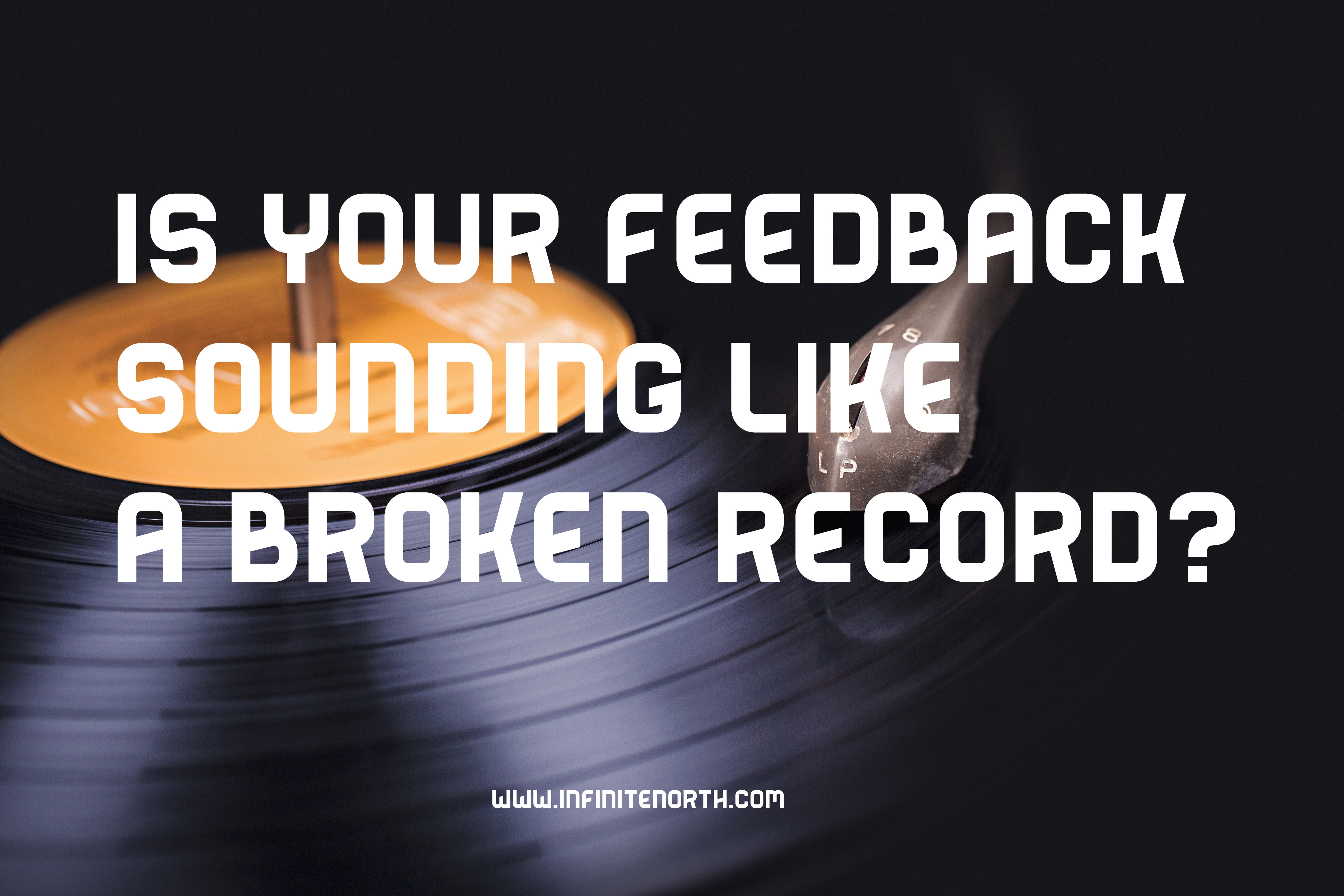Each aspect of this could be broken down into excruciating detail, and if you want to hear that breakdown, contact me here. This blog will provide the highlights…and feel free to leave some feedback in the comments below.
Every organization I’ve ever worked for has made some formal declaration of their openness to feedback. It’s widely accepted that successful businesses, teams, and relationships are built on a foundation of clearly communicated feedback. That, however, is easier said than done. In some instances, the feedback is simply absent – there is no conversation. In more toxic environments, feedback is actively used to criticize, judge, discouraged, deflected, or otherwise dismissed people. Occasionally, feedback is present, but ineffective. Whichever situation you find yourself in, if you want to increase or improve feedback, make sure it includes the following three components:
- Observation: A simple observation is a great place to start with feedback. This can be an observation of external circumstance or of internal experiences. For example, you may let a coworker know, “I saw that all your TPS reports were turned in on time this month.” That alone acknowledges that their performance was important enough to pay attention. It’s clear, concise, and gets right to the point. In some instances, the observation may be less concrete. When reviewing a piece of writing, you may reflect, “At the start of the second paragraph, I was a bit confused.” This is an observation about an internal experience. Notice that neither of these observations are not subjective. Be careful to avoid blaming or criticism in these situations. The previous example could easily become, “At the start of the second paragraph you started writing without a clear direction…you stopped paying attention to where the essay was going” You can observe your response to the writing, but implying intention (or lack thereof) is an invitation for defensiveness.
- Evaluation: This is where you get to say, “Hey, great job this month.” or “That was horrible.” Positive evaluation without specific observation becomes quite limiting. Evaluative statements leave too many questions unanswered and too much room for assumptions. It’s nice to hear “great job,” but without knowing what concrete detail of your job is great, you haven’t learned anything about what you’re doing well. Reverse the important bits and you’ll see it’s the same for critical evaluations. Knowing I got a 65% on an exam doesn’t tell me anything about what I did poorly or what I did well.
- Advice: Presuming someone actually wants feedback, they’ll want to know how to improve (or at least maintain) what they’ve already accomplished. They want advice on what do differently (or the same) moving forward. You can provide guidance on what needs to change. Ideally, advice is based on a goal agreed upon by the person providing and receiving the feedback. Giving advice on how to write a more persuasive essay will be of little value to someone aiming to create an objective, informative piece of literature.
There are two more equally important aspects to feedback, but they only matter if the three components listed above are already being applied. First of all, effective feedback requires a balance between observation, evaluation, and advice. To actually help a person make changes efficiently, all aspects of feedback will be required. If you constantly tell people, “you are awesome,” take the time to throw in some observations and advice. If you’re constantly correcting others or telling them what to do, slow down and start making some observations and evaluations. If you’re missing a piece, or you notice a dramatic imbalance, correct accordingly. No single aspect of this system works alone, and no ratio is right for every individual or every situation. Apply observation, evaluation, and advice flexibly to whatever situation you’re in. The last component, and perhaps the most important to overall effectiveness, is consistency. A single conversation will never be as effective as an ongoing discussion. You won’t be able to gauge how feedback is being received in an isolated situation; even if they seem to receive the feedback, the true test comes in changes to the behaviors being observed. In a one-time discussion, patterns will go unrecognized, goals will be unclear, and proper ratios of observation, evaluation, and advice will be guessed at. Without consistency, constructive feedback can feel critical and judgmental. Without practice giving and receiving feedback is an awkward dance of two novices attempting new maneuvers. Occasional feedback can leave people pained the same way infrequent exercise leads to disproportionate soreness.


